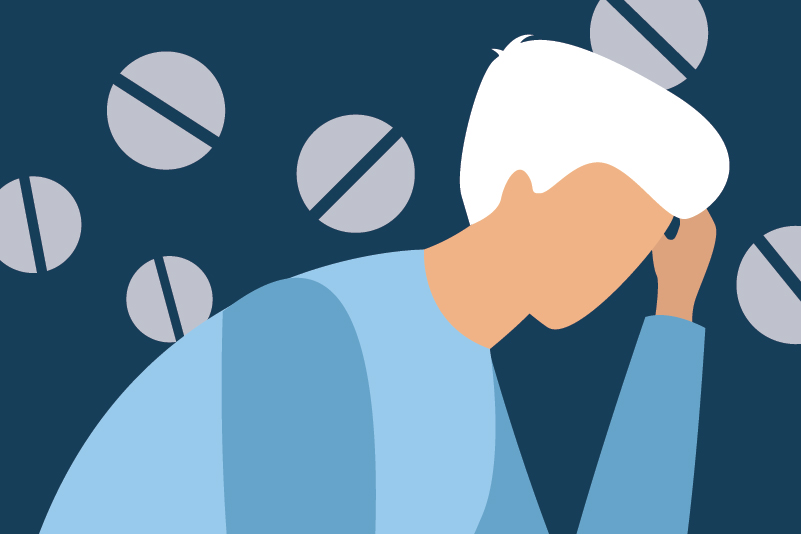#127 What can’t they do: Steroids for my sore throat?

Reading Tools for Practice Article can earn you MainPro+ Credits
Join NowAlready a CFPCLearn Member? Log in
- Eight randomized placebo-controlled trials (RCTs) of single-dose oral or intramuscular steroids (commonly dexamethasone) in 743 children or adults with sore throats.
- Patients given steroids were more likely pain free at:
- 24 hours [39% vs. placebo 12%, number needed to treat (NNT)=4].
- 48 hours [76% vs. 47%, NNT=4].
- Pain relief onset ~6 hours faster.
- Patients given steroids were more likely pain free at:
- Adults, patients with group A streptococcus (GAS), and those with more severe symptoms seem to benefit more.
- Limitations:
- Potential confounders (e.g. analgesic use) not always reported.3,4,5
- Treatment differed from normal clinical practice:
- All patients in adult studies were given antibiotics, often without throat swabs.1
- Other reviews found similar results.6,7
- Pediatrics: 184 children in Canadian emergency department with <48 hours of moderate sore throat found dexamethasone (0.6mg/kg, max 10mg):8
- Decreased time to pain relief by 5.5 hours in GAS positive patients, but increased time to pain relief by four hours (not statistically significant) in GAS negative patients.
- Adults: 120 patients in American emergency department with moderate-severe sore throat (all given antibiotics, ~33-43% GAS positive)9 found that patients given 10mg dexamethasone were:
- More likely pain free at 24 hours (29.3% vs. 11.1%, NNT=6).
- Most sore throats resolve in 2-5 days.10
- Steroid adverse events: No differences reported1,2 but concerns about using in patients who actually have leukemia or lymphoma.11
- Current guidelines do not recommend steroids for pharyngitis.12















Sounds like a good idea not to give steroids since safer pain control meds are available